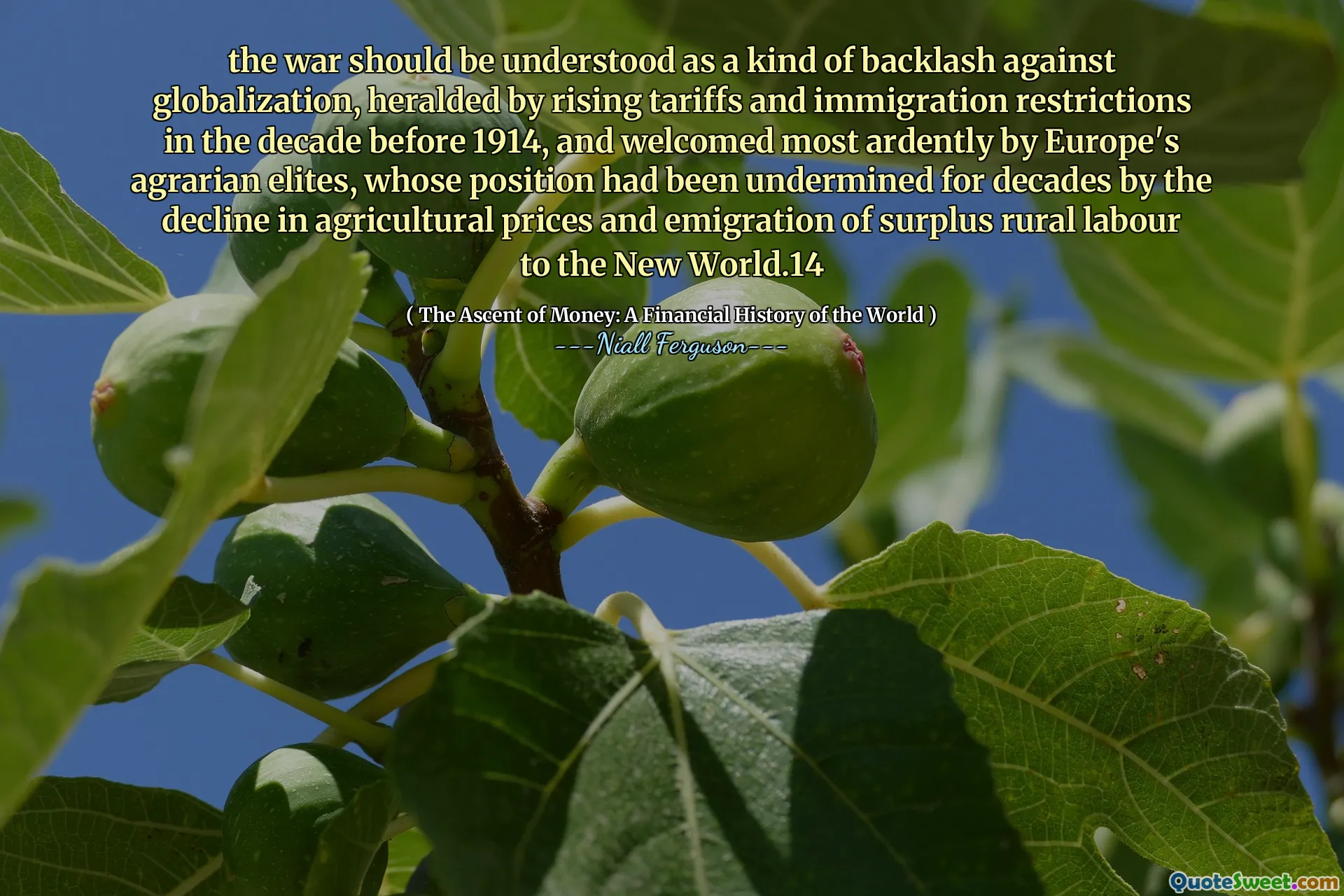
the war should be understood as a kind of backlash against globalization, heralded by rising tariffs and immigration restrictions in the decade before 1914, and welcomed most ardently by Europe's agrarian elites, whose position had been undermined for decades by the decline in agricultural prices and emigration of surplus rural labour to the New World.14
Niall Ferguson's "The Ascent of Money" posits that the war served as a reaction against the forces of globalization that were shaping Europe before 1914. Rising tariffs and strict immigration policies reflected a growing backlash against the interconnectedness of economies and populations, highlighting a desire for national protectionism.
This sentiment was particularly strong among Europe's agrarian elites, who felt threatened by falling agricultural prices and the loss of labor due to emigration. Their support for the war can be seen as an effort to regain control and rectify their diminishing influence in a rapidly changing economic landscape.











